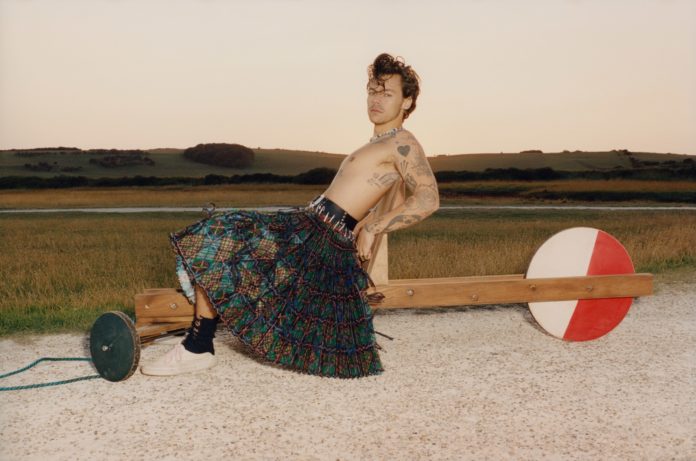
Harry Styles marks the first man to appear alone on the cover of Vogue. The December issue of the magazine showed the English singer-songwriter wearing a light blue lace dress with a black blazer. The cover sparked controversy, with some praising Styles for defying gender norms while others saying his style makes him less masculine.
Emma Leger, a fourth-year sociology student at St. Thomas University, said she was happy with the photoshoot.
“It doesn’t matter if you present as a male or female, or what you identify as or what your sexuality is,” she said. “If you like something or you think that something is nice, you should wear it regardless of what gender it’s typically assigned to.”
Styles isn’t the first popular male musician to wear feminine clothing. David Bowie, Prince, Lou Reed and more recently Andre 3000 and Young Thug have expressed their femininity, though Styles has sparked the most interest from the public in recent memory.

Tyler MaGee, the St. Thomas University Students’ Union sexuality and gender diversity representative, said Styles has opened up a conversation about masculinity and femininity. He thinks the conversation is powerful.
MaGee said when it comes down to Prince and David Bowie, they are part of a different generation and Styles is our equivalent to that.
“I think that it’s reawakened similar things to the conversations that had been had previously. I think this is just our version of them,” he said.
MaGee said he thinks more people should be actively challenging these rigid and often oppressive gender roles in society. It’s uncommon to see such an influential figure in a position that challenges views on gender and masculinity.
“Everybody is policed by gender roles, we see it everywhere,” he said. “I think that having one of the most popular magazines on the planet helps to spread a different narrative to one that we’ve been told. It challenges the idea of what is masculine what is feminine.”
MaGee said he believes this issue of gender expression is one that should be worked through on a personal level as well as a cultural one.
“Having this image out there causes a degree of self-reflection. Rather than projecting your own perceptions of yourself onto another person, start having those conversations within you.”

Leger said clothes have no gender, though people think they do because that’s the way society has always lived. Clothing became gendered, so Styles’ wearing a dress sparked controversy, she said.
“We need to talk about why are so many people angry about this, why are so many people grossed out by this,” she said. “Everyone knows there’s not only two genders. People aren’t just male or female. A man wearing a dress doesn’t mean that he’s any less masculine.”
